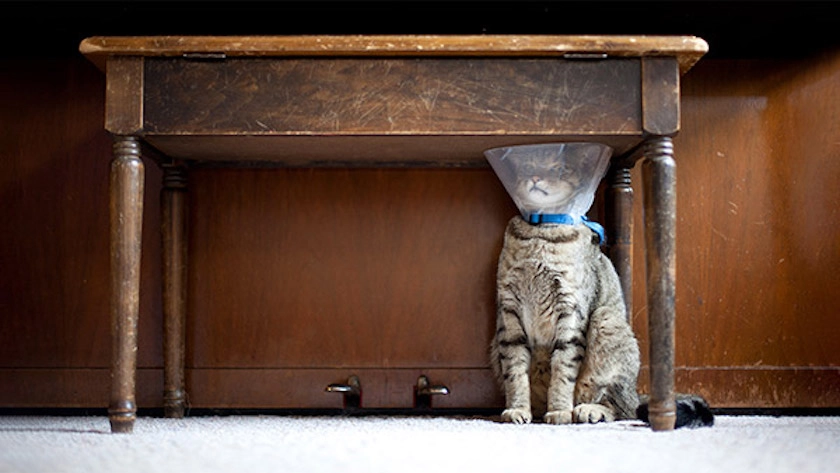By the end of the school year, I don’t know who’s more ready for summer break—students or teachers.
On college campuses, the end of the year for students brings a frenzy of cramming for finals and finishing papers and research projects. Then it’s the professors’ turn to cram, as they read, evaluate, and grade all those exams and papers and projects and get students’ grades submitted on time.
At the end of this school year I found myself even more exhausted than usual. For the first time in a long time, I was radically in need of rest. Between teaching, researching, writing & editing, advising students, conducting workshops, attending conferences, traveling, maintaining my coaching practice, and tending to family obligations, I was constantly over-extended.
And here’s the thing: I don’t know that I’d strike a single activity off this list! The year was filled with wonderful things, including the major milestone of completing my book and submitting the manuscript to HarperCollins. It’s an excellent reminder that even things we feel passionate about and sincerely want to pursue can increase our risk of burnout if we don’t have adequate rest and recovery.
This is why, no matter what job we do, we all need to engage in regular periods of rest and restoration. There’s actually a field of study dedicated to what organizational psychologists call “work recovery,” or sometimes, the more aptly named “work-stress recovery.” On one level, work recovery is exactly what it sounds like—the practice of periodically stepping away from the demands of work in order to unwind, recharge, and recover from the stresses of work.
Researchers have found that when we don’t get these opportunities to decompress and rest, we’re more susceptible to illness, depression, anxiety, and sleep disturbances, and we experience lower productivity, effectiveness, and satisfaction at work.
One of the key insights researchers have discovered about work recovery is that it works best when you engage in it regularly. This isn’t just about taking time off here and there, or squeezing in a vacation once all the stars align. People who exhibit the most resilience to work-related stress—even when they’re in high-demand jobs—are those who give themselves the gift of regular work recovery.
If that sounds radical, just consider the habits of serious athletes. Athletes engage in regular periods of recovery throughout their training—not just when they sustain an injury or have no gas left in the tank. Their rest days are actually the key to preventing injury and exhaustion. Like athletes, we owe it to ourselves to treat work recovery as an essential component of professional training and top-level performance, and to use it as a preventive strategy rather than just a cure.
Regular work recovery need not be anything elaborate or expensive. Researchers found that even ten-minute micro-breaks taken throughout the workday are effective in relieving work-related stress—and in fact, are more effective than one long break at the end of the day or saving up a big break for vacation.
So let’s hit Refresh on the way we think about rest and work recovery. Let’s not turn to it only as a last resort, when illness or exhaustion has forced us to slow down and recuperate. Instead, let’s insist on the radical need for rest, the kind that’s proactive and consistent, that supports our best performance, and that’s baked into the culture of work.
Here are some strategies that will help you recover from work stress and be your happiest, most effective self at work.
- Take those micro-breaks. Step outside and get some fresh air, walk around the block, chat with a colleague, grab a snack, drink some water, close your eyes and just relax. Anything that takes your mind off of work counts.
- Keep up with your social connections. People who have supportive relationships at work have lower rates of burnout, greater work satisfaction, higher productivity and engagement, and are less stressed. They also tend to be happier and healthier.
- Have some fun outside of work. Research has shown that playful people who engage in activities for the sheer fun of it are better at managing stress. They also tend to have stronger social connections, as many leisure experiences are group activities.
- Challenge yourself with a mastery experience. Contrary to what you’d expect, taking on mastery experiences—activities that require effort, such as learning a new language—are more effective for work recovery than passive activities, such as binge-watching Netflix.
- Try mindfulness meditation. You don’t need an elaborate technique or an enormous time commitment. Just for a few minutes, try paying attention to your present-moment experience, noting it without judgment, and then gently letting it go. In essence, that’s all there is to mindfulness meditation. When practiced regularly, it’s been shown to reduce stress and anxiety, improve sleep and overall health, and increase resiliency and emotional regulation.
- Establish and maintain boundaries. This recommendation never gets old. We all need boundaries between our personal and professional lives that protect our downtime and allow us to mentally detach from work, as well as boundaries at work that keep our workload manageable and prevent exhaustion. Boundaries are safeguards that keep us at our physical, mental, and emotional best.
What would you add to this list? Feel free to share your ideas with me—I’d love to hear about more work recovery strategies that work!




